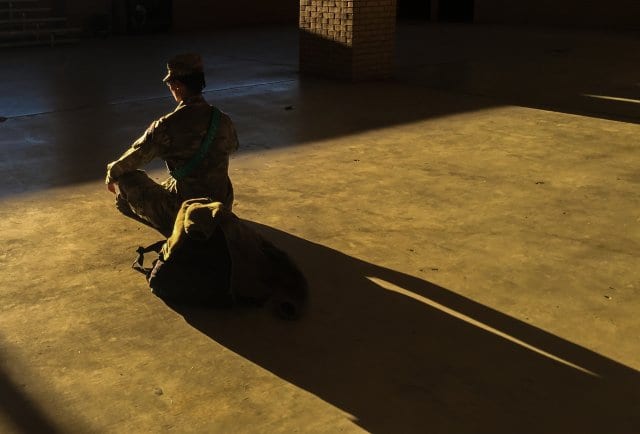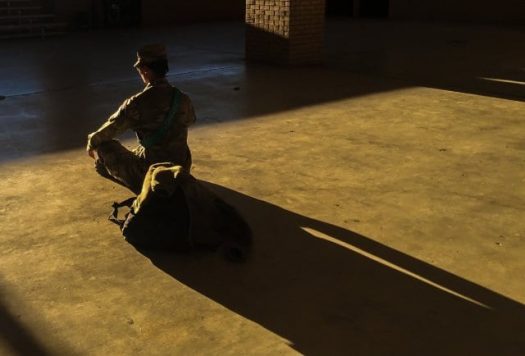By: Jason M. Jowers, M.S. MFT

U.S. Army [Practicing Meditation by Dr. Valerie Rice, January 30, 2018, CC0]
With that idea in mind, I wanted to look into the history of a concept that has affected people in conflicts and wars throughout: Post Traumatic Stress Disorder (PTSD). This article [1] from PBS breaks down what we’ve known about PTSD for the past 100 years, with the end of World War I to modern day military conflicts. I found this article to be very interesting in that it highlights a history of the past 100 plus years of how we’ve looked at and thought about PTSD. This phenomenon of PTSD related to combat showcases the intersection of two constructs that clearly physicians and researchers have been exploring for the past 100 years: military combat and mental health.
However, it seems the more we know about PTSD, the symptoms themselves and how it affects people’s daily lives, the more questions come about. There are a great number of treatments and therapies out there that are helping and the military is funding new research and ways to increase quality of life for military service members. We are making progress in the understanding of PTSD and time will tell if we can make changes within the cultural views of mental health and exposure to trauma.
For more OneOp resources on bouncing back for military service members, be sure to tune into our upcoming Resilience Series, a three-part webinars series that will take place starting on August 20th. Head on over to our series homepage here. Note: FREE Social Work, Licensed Professional Counselor (LPC), Licensed Marriage and Family Therapist (LMFT), and Case Manager CE credits will be available.
References
[1] McDonald, M., Brandt, M., & Bluhm, R. (2018). From Shell-Shock to PTSD, A Century of Invisible War Trauma. PBS.org. Retrieved from: https://www.pbs.org/newshour/nation/from-shell-shock-to-ptsd-a-century-of-invisible-war-traumaThis post was written by members of the OneOp Family Development Team. The Family Development team aims to support the development of professionals working with military families. Learn more about us at https://oneop.org/family-development, and connect with us on Facebook, and on Twitter. Subscribe to our Anchored. podcast series on iTunes and via our podcast page.




![Blog Post Image: Pexels [Silhouette Photo of Jumping Children, photo by Margaret Weir, Sept. 22, 2017, CC0]](https://oneop.org/wp-content/uploads/2024/04/pexels-margaret-weir-620530-600x403.jpg)










